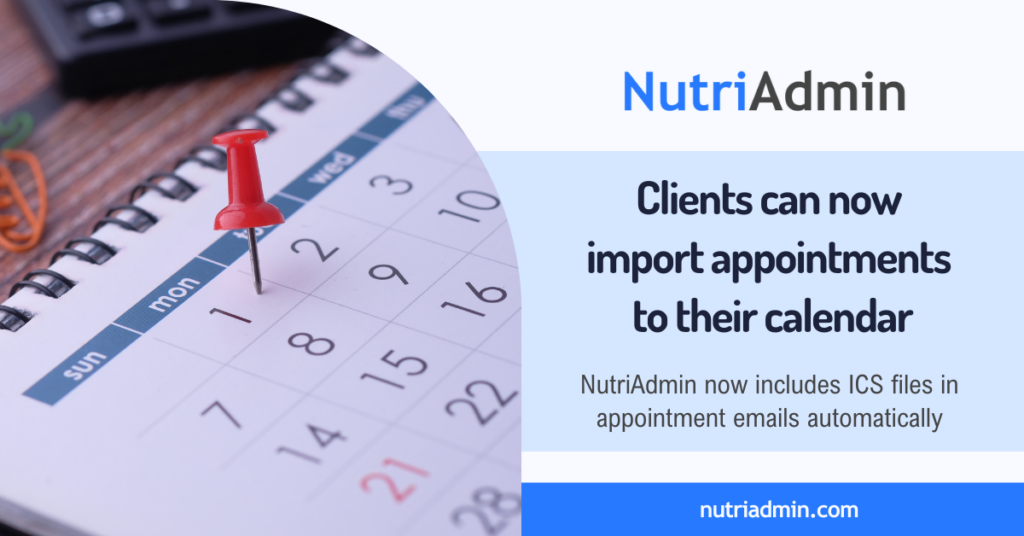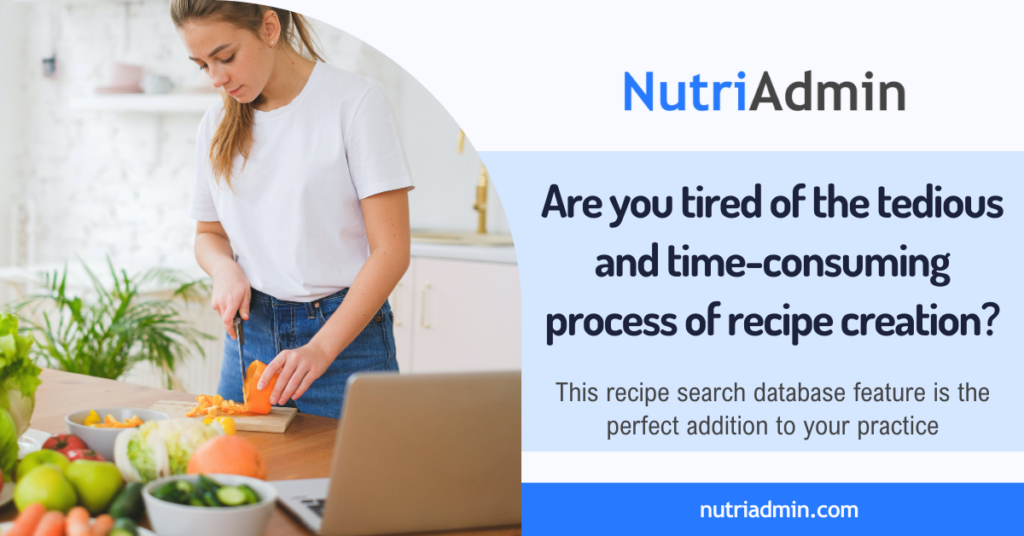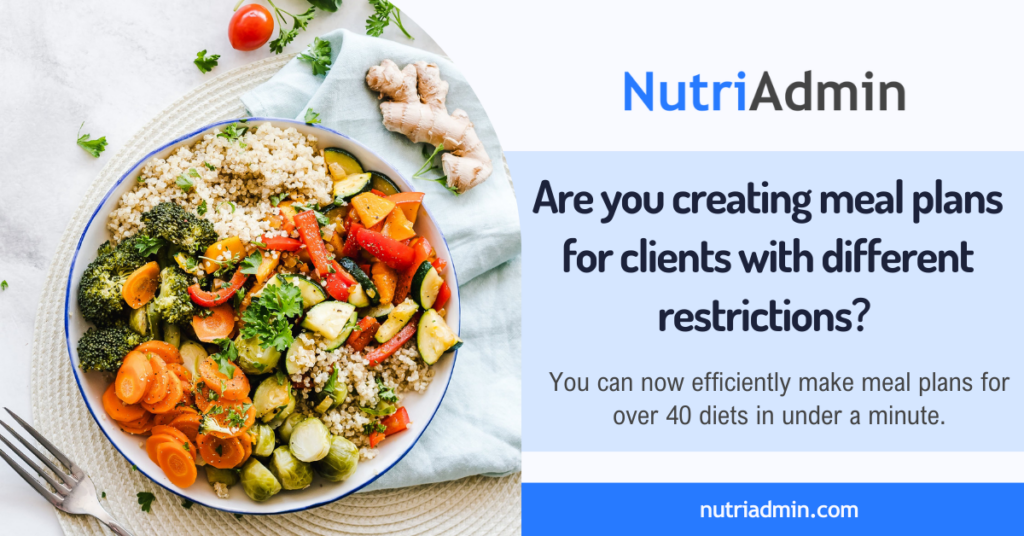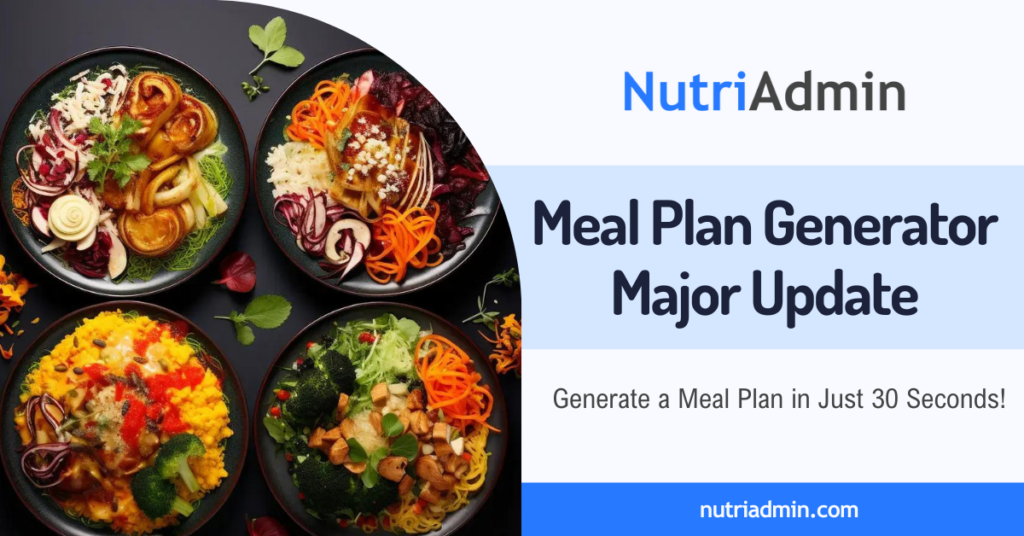An Electronic Health Record – EHR for short – is the digital version of a patient’s chart. Professionals in the health and wellness sector use them to better study and diagnose conditions and treatments for individuals.
There are many advantages of having records kept electronically. It’s easy to search through them, update them, and keep them organised in an efficient way. They allow you to save time and do your work better.
The problem is that each sub-sector in wellness needs different metrics and data to be tracked in their electronic health records.
Nutritionists and dietitians need to keep track of the patient’s:
- Personal and contact details
- Symptoms and goals
- Medication and supplements in use
- Special dietary requirements and allergies
- Food journals
- etc
The list can easily extend to over one hundred different data fields.
Options for EHR for nutritionists
If you want a very flexible EHR for nutritionists system where you can input all of the important data fields that you need as a dietitian to help your clients; there are a few options.
1. Build your own EHR
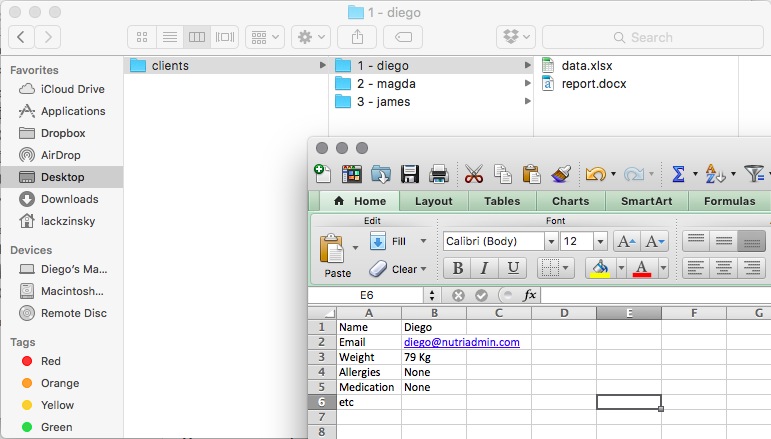
You can create your own folder structure in your computer – E.g. One folder per patient – Then include all data relevant to that patient inside.
The bulk of the data could be kept in an Excel spreadsheet or similar. Having a pre-made template with the fields you need would be really helpful.
Reports, or meal plans you create for the client can be stored in the same folder to keep it all organised.
The main benefit of this system is that it is free (assuming you have an Office package), and you can make it as flexible as you need.
However, it will take a lot of time to setup and maintain the system over time. It’s easy for it to become messy once you have more clients. The whole purpose of EHRs was to save time! So be careful.
Who is this for: If you have a small volume of clients you can be more organised than with just paper without incurring any extra expenses.
2. Use a EHR system for the health industry
If you search for EHR in Google you will find many software options available of all sorts.
You could definitely go for a software solution for the health industry. Maybe you are already using one yourself, or the medical centre you work for is subscribed to a product.
This solutions can work well, definitely saving more time than using paper or Excel spreadsheets. The problem is that they are often too generic.
Generic means that most companies behind EHR software for the medical industry target the sector as a whole. This includes nutritionists, but also chiropractors, surgeons, opticians, etc.
By targeting the whole health industry, software companies have a larger market to sell their products to. However, this means that nutritionists will not get an specialised tailor-made solution.
In practical terms, most generic EHR systems will come equipped with a gazillion options, settings, data fields, and features that dietitians do not need (but still have to pay for)
Even worse, some very important but niche functionalities you need may be missing, because it wouldn’t be profitable for the software provider to spend resources in something that only 5% of their subscribers (nutritionists) would use.
These generic software solutions used to be the best option available years ago, since the alternative was physical paper. However, nowadays specialised software for nutritionists exists. With more relevant features at a lower price.
Who is this for: If you work at a large clinic and cannot easily influence budget allocation decisions, then you probably have no option but to stick with what is in use.
However, if you are self-employed, work in a small practice, or need a more specialised solution… You may want to check option 3.
3. Use an EHR for nutritionists
Nowadays you can use specialized nutritionist software to keep your client records. There are multiple options out there, you can check our guide on the best apps for nutritionists to learn more.
We developed NutriAdmin only for nutritionists and dietitians; as opposed to the whole health industry.
For this reason, all the features you will find in NutriAdmin are relevant for health coaches in nutrition. The EHR include fields such as:
- Supplements recommendations table
- 3-Day food journals
- Food intake assessment (tick checkboxes quickly during a consultation)
- and hundreds more!
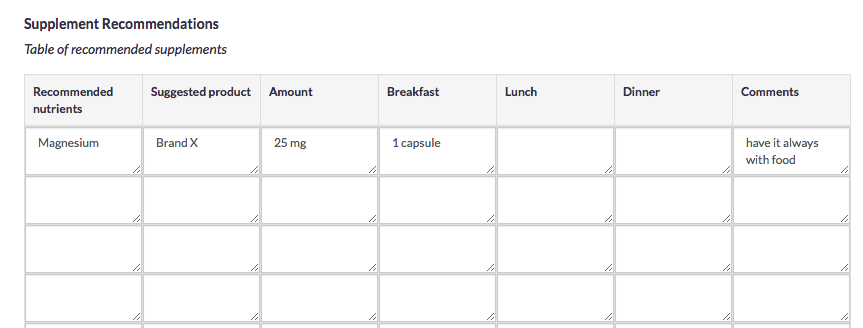
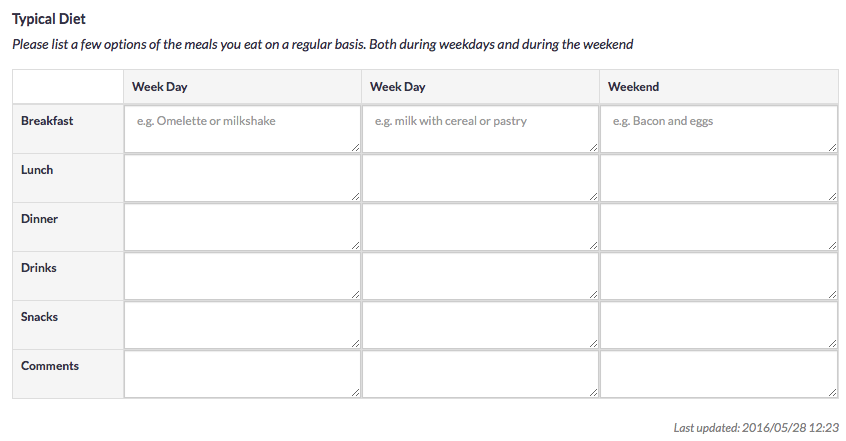
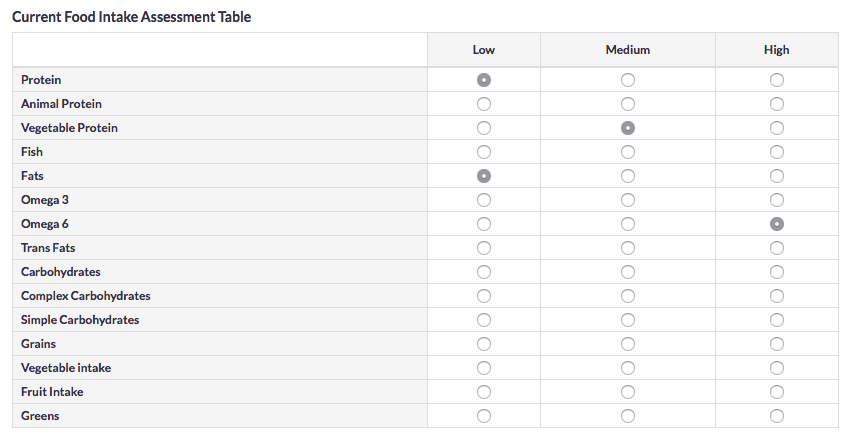
Moreover, the system is integrated with a calendar, reports, meal plans, and other useful features.
For example, you can fill in the supplements table above and other diagnosis data or recommendations for your patient; then generate a client report with 1 click with all your advice.
This is all possible since NutriAdmin focuses only in nutritionists and dietitians. Having not to worry about other health professionals allows us to really build what is best for a smaller number of users: nutritionists.
Finally, it is much cheaper to build, maintain, and run software for nutritionists only, than for everyone in the health industry. That’s why NutriAdmin will always be cheaper than big software packages that are more generic.
Who is NutriAdmin for: Nutritionists and dietitians. Specially, if you manage your own practice, work in a small team, or have many clients and need to optimize your process now.
If you are just starting your business and have few clients, you either use option 1 (do all the admin yourself) or you can start with the basic plan of NutriAdmin to have your records organised from day 1.
In you are interested in NutriAdmin, you can get a 14-day free trial at https://nutriadmin.com
Conclusion
There are many options available to keep your client records and data electronically. Each presents advantages and disadvantages; and likely an alternative will be better for you than others based on your situation.
Thanks for reading,

